Rohinton Mistry is an Indian-born Canadian writer. He has been the recipient of many awards including the Neustadt International Prize for Literature in 2012. Each of his first three novels was shortlisted for the Booker Prize. His novels to date have been set in India, told from the perspective of Parsis, and explore themes of family life, poverty, discrimination, and the corrupting influence of society.

The Blind Assassin is a novel by the Canadian writer Margaret Atwood. It was first published by McClelland and Stewart in 2000. The book is set in the fictional Ontario town of Port Ticonderoga and in Toronto. It is narrated from the present day, referring to previous events that span the twentieth century but mostly the 1930s and 1940s. It is a work of historical fiction with the major events of Canadian history forming an important backdrop, for example, the On-to-Ottawa Trek and a 1934 Communist rally at Maple Leaf Gardens. Greater verisimilitude is given by a series of newspaper articles commenting on events and on the novel's characters from a distance.

We Wish to Inform You That Tomorrow We Will Be Killed With Our Families: Stories from Rwanda is a 1998 non-fiction book by The New Yorker writer Philip Gourevitch about the 1994 Rwandan genocide, in which an estimated 1,000,000 Tutsis and Hutus were killed.
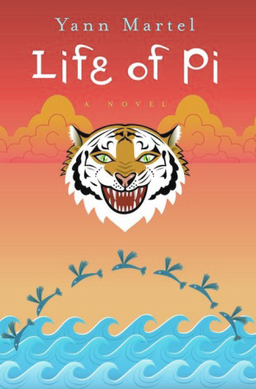
Life of Pi is a Canadian philosophical novel by Yann Martel published in 2001. The protagonist is Piscine Molitor "Pi" Patel, an Indian boy from Pondicherry, India, who explores issues of spirituality and metaphysics from an early age. After a shipwreck, he survives 227 days while stranded on a lifeboat in the Pacific Ocean with a Bengal tiger, raising questions about the nature of reality and how it is perceived and told.

The Line of Beauty is a 2004 Man Booker Prize-winning novel by Alan Hollinghurst.

Everything Is Illuminated is the first novel by the American writer Jonathan Safran Foer, published in 2002. It was adapted into a film of the same name starring Elijah Wood and Eugene Hütz in 2005.
Monica Ali is a British writer of Bangladeshi and English descent. In 2003, she was selected as one of the "Best of Young British Novelists" by Granta based on her unpublished manuscript; her debut novel, Brick Lane, was published later that year. It was shortlisted for the Man Booker Prize. It was adapted as a 2007 film of the same name. She has also published four other novels. Her fifth novel, Love Marriage, was published by Virago Press in February 2022 and became an instant Sunday Times bestseller.
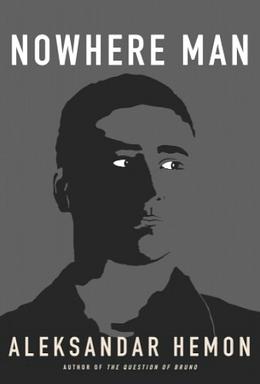
Nowhere Man is a 2002 novel by Aleksandar Hemon named after the Beatles song "Nowhere Man". The novel centers around the character of Jozef Pronek, a Bosnian refugee, who was already the subject of Hemon's novella Blind Jozef Pronek & Dead Souls published in his short story collection The Question of Bruno (2000).
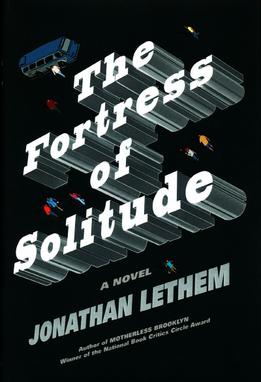
The Fortress of Solitude is a 2003 semi-autobiographical novel by Jonathan Lethem set in Brooklyn and spanning the 1970s, '80s, and '90s. It follows two teenage friends, Dylan Ebdus and Mingus Rude, one white and one black, who discover a magic ring. The novel explores the issues of race and culture, gentrification, self-discovery, and music. The novel's title is a reference to the Fortress of Solitude, a fortress constructed for Superman.

My Life is a 2004 autobiography written by former U.S. president Bill Clinton. It was released on June 22, 2004, around three years after Clinton left office. The book was published by the Knopf Publishing Group and became a bestseller; the book sold in excess of 2.3 million copies. Clinton received a $15 million advance for the book, the highest such fee ever paid by a publisher.
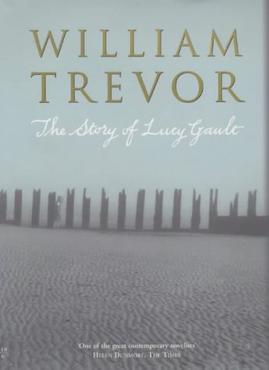
The Story of Lucy Gault is a novel written by William Trevor in 2002. The book is divided into three sections: the childhood, middle age and older times of the girl, Lucy. The story takes place in Ireland during the transition to the 21st century. It follows the protagonist Lucy and her immediate contacts. The book was shortlisted for the Booker and Whitbread Prizes in 2002.

Unless is the final novel by Canadian writer Carol Shields, first published by Fourth Estate, an imprint of HarperCollins in 2002. Semi-autobiographical, it was the capstone to Shields's writing career: she died shortly after its publication in 2003. The work was widely acclaimed and nominated for the Booker Prize, the Giller Prize, the Governor General's Award, the Orange Prize for Fiction, and received the Ethel Wilson Fiction Prize. In 2011, it was a finalist in the Canada Reads competition, where it was defended by actor Lorne Cardinal. Like many of her works, Unless explores the extraordinary that lies within the ordinary lives of ordinary women.

Dark Star Safari (2002) is a written account of a trip taken by American author Paul Theroux from Cairo, Egypt, to Cape Town, South Africa, via trains, buses, cars, and armed convoy. Theroux had lived in Africa as a young and idealistic early member of the Peace Corps and part of the reason for this trip was to assess the impact on Africa of the many years of aid from Western countries. His assessment is generally critical of the long-term impact of aid programs.

The Autograph Man, published in 2002, is the second novel by Zadie Smith. It follows the progress of a Jewish-Chinese Londoner named Alex-Li Tandem, who buys and sells autographs for a living and is obsessed with celebrities. Eventually, his obsession culminates in a meeting with the elusive American-Russian actress Kitty Alexander, a star from Hollywood's Golden Age. In 2003, the novel won the Jewish Quarterly-Wingate Literary Prize. The novel was a commercial success, but was not as well received by readers and critics as her previous and first novel, White Teeth (2000). Smith has stated that before she started work on The Autograph Man she had writer's block.
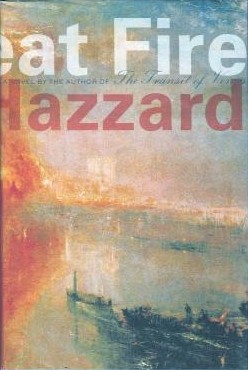
The Great Fire (2003) is a novel by the Australian author Shirley Hazzard. It won the U.S. National Book Award for Fiction and a Miles Franklin literary award (2004). The novel was Hazzard's first since The Transit of Venus, published in 1980.
The Third Reich Trilogy is a series of three narrative history books by British historian Richard J. Evans, covering the rise and collapse of Nazi Germany in detail, with a focus on the internal politics and the decision-making process. The three volumes of the trilogy – The Coming of the Third Reich, The Third Reich In Power, and The Third Reich at War – were published between 2003 and 2008. The books are illustrated with maps created by András Bereznay.

Pastoralia is short story writer George Saunders’s second full-length short story collection, published in 2000. The collection received highly positive reviews from book critics and was ranked the fifth-greatest book of the 2000s by literary magazine The Millions. The book consists of stories that appeared in The New Yorker; most of the stories were O. Henry Prize Stories. The collection was a New York Times Notable Book for 2001.
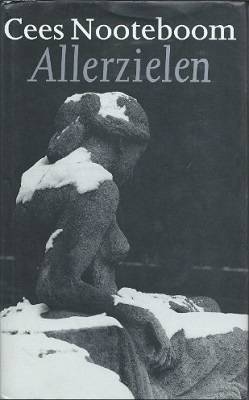
All Souls' Day is a 1998 novel by the Dutch writer Cees Nooteboom. It tells the story of a Dutch documentary filmmaker who lives in Berlin, and reflects, with his friends, on matters such as art, history, and national characters.

The Impressionist is Hari Kunzru's debut novel, first published in 2003. Kunzru received the Betty Trask Award and the Somerset Maugham Award for the book's publication.
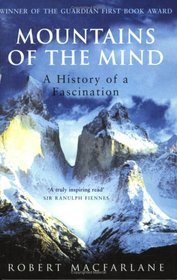
Mountains of the Mind: A History of a Fascination is a book by British writer Robert Macfarlane published in 2003 about the history of human fascination with mountains. The book takes its title from a line by the poet Gerard Manley Hopkins and combines history with first-person narrative. He considers why people are drawn to mountains despite their obvious dangers, and examines the powerful, and sometimes fatal, hold that mountains can come to have over the imagination. The book's heroes include the mountaineer George Mallory, and its influences include the writing of Simon Schama and Francis Spufford. In the end, Macfarlane criticizes Mallory for devoting more time to the mountain than his wife and notes that he has personally sworn off high-risk mountaineering. The New York Times's John Rothchild praised the book, writing "There's fascinating stuff here, and a clever premise, but Mountains of the Mind may cause recovering climbaholics to trace their addiction to their early homework assignments and file class-action lawsuits against their poetry teachers."

















